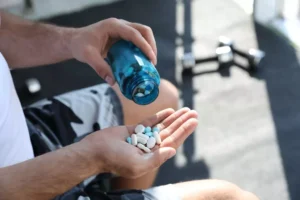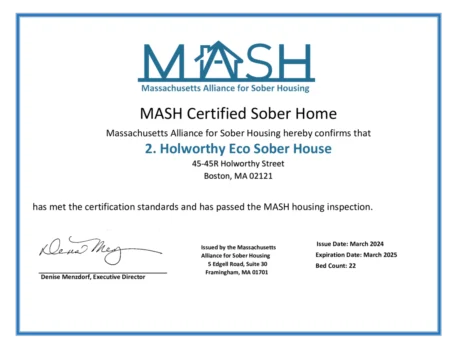
If you are experiencing symptoms of delirium tremens (DT), contact emergency services immediately. Symptoms of DT include confusion, changes in blood pressure, excessive sweating, fever, hallucinations, and seizures. America — and arguably a large part of the world — is soaked in booze, making an alcohol detox challenging for those who fear they’ve crossed the line between party and problem. Before starting any complementary treatment, be sure to discuss it with a doctor to make sure it’s safe for you. Omega-3-rich fish like salmon and mackerel may also help improve focus and overall brain health.
Detoxification Programs
One of the biggest challenges of quitting alcohol is dealing with triggers and cravings. Triggers can be anything that reminds you of drinking, such as a social event or a stressful situation, while cravings are intense urges to drink that can be difficult to resist. Detoxification programs can provide medical supervision and support as you withdraw from alcohol. Consider seeking out a reputable program with experienced professionals. Most people recover from alcohol withdrawal within a week, but people with severe dependency may experience withdrawal for multiple weeks.
How To Find a Detox Program

Consider joining a support group or seeking out social activities that align with your interests. Mindfulness practices such as meditation and deep breathing exercises can help you stay present in the moment and resist cravings. Exercise is a great way to take your mind off of alcohol, reduce stress, and release endorphins that can improve your mood. In the US, around 14.5 million adults battled alcohol use disorder in 2019, according to the National Survey on Drug Use and Health.
How Plants Can Optimize Athletic Performance
Late symptoms begin between two and four days after the last drink, and they usually include changes in heart rate, breathing and blood pressure. Serious symptoms caused by delirium tremens include hallucination and seizure. Alcohol can stay in your system is sneezing a sign of withdrawal for several hours depending on how much you drink. Once it begins to leave your body, early symptoms of withdrawal begin. Tapering can help you overcome alcohol dependence, which is a side effect of chronic alcohol use that causes cravings and withdrawal.
Strategies for Managing Stress and Anxiety Without Turning to Alcohol

If you choose to detox from alcohol at home, consider the following recommendations. First of all, it’s not a good idea to rely only on natural remedies for alcoholism, especially if other substances are involved. Minor symptoms of alcohol withdrawal can be overcome with rest and at-home remedies, and it is possible for some people to taper off alcohol without supervision. However, individuals who suffer from alcohol addiction require professional rehab. When they suddenly quit drinking, the brain continues its hyperactivity, but alcohol no longer suppresses the effects. This can cause seizures and delirium tremens, a severe form of withdrawal marked by tremors and hallucinations.
How Is Alcohol Withdrawal Managed In A Clinical Setting?
Quitting alcohol can be a difficult and challenging journey, and it’s important to set achievable goals to avoid feeling overwhelmed or discouraged. Mindfulness practices such as journaling, deep breathing, and gratitude exercises can help to reduce stress and increase self-awareness. They can also help you to stay present and focused on your sobriety. Therapy can be a valuable tool for addressing the underlying issues that may be contributing to your alcohol addiction. Consider seeking out a therapist who specializes in addiction treatment.
Natural Treatments of Alcohol and Drug Abuse and Withdrawal

It may be easier on your rehabilitation to skip visits with “drinking buddies” or avoid gatherings with a focus on drinking. Discover effective strategies for alcohol detox, including hydration, nutrient-rich foods, adequate rest, and professional support, to ensure a successful recovery journey. The process typically involves a referral from a healthcare provider, followed by a pre-admission evaluation and verification of insurance coverage before admission. Remember that developing healthy coping mechanisms takes time and practice, but it is an important part of the recovery process.
How to Treat Alcohol Withdrawal with Natural Remedies
- However, tapering is not a medically recommended form of quitting alcohol because it is difficult.
- This can cause seizures and delirium tremens, a severe form of withdrawal marked by tremors and hallucinations.
- Talk to your doctor or a drug treatment specialist about what to expect as you experience alcohol withdrawal.
Continue tapering until you can safely go 24 to 48 hours without suffering ill effects. Abruptly stopping drinking when you have withdrawal symptoms is not advisable without medication. For hundreds of years, long before medications were available, people have successfully used alcohol for alcohol withdrawal symptoms 1. The optimal drink to use is beer, as anything stronger will likely lead to drunkenness.
Tips to Safely Detox from Alcohol at Home
“Niacin (vitamin B-3) can be especially effective in larger prescribed doses,” Roher says. Taking your recovery into your own hands may be tempting, but it’s not worth putting yourself through an incredibly dangerous process for an uncertain reward. They have experienced health care and mental health professionals standing by to answer your questions about proper alcohol treatment and why home remedies for alcohol withdrawal don’t work. All it takes is one phone call, and your health and recovery will be in the hands of people who know how to help you. Many people with alcohol use disorder struggle with dehydration and nausea during withdrawal. Drinking lots of fluids, especially fluids with electrolytes, will help address dehydration and nausea and improve your overall health and ability to undergo withdrawal.
